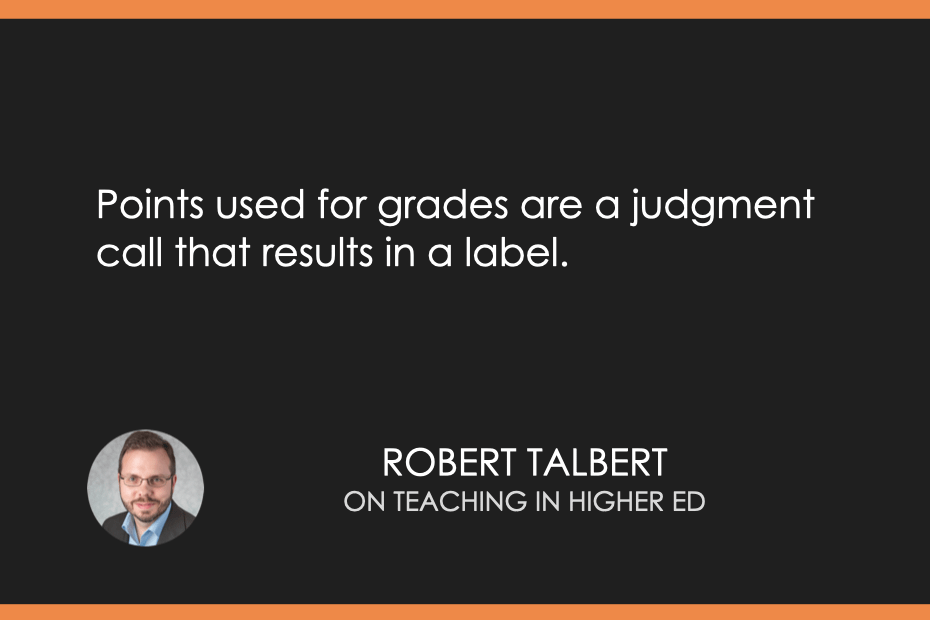Podcast (tihe_podcast):
Play in new window | Download | Transcript
Subscribe: Apple Podcasts | Spotify | RSS | How do I listen to a podcast?
Robert Talbert shares about the principles of grading for growth on episode 510 of the Teaching in Higher Ed podcast.
Quotes from the episode

In one shot, she can't get a B in the class. And I sat there and just watched her sense of self worth and her excitement in the class just decay away right before my eyes.
-Robert Talbert
When you look at grades as we often use them in a traditional setting, they are much of what we do is under the guise of object what we think is objectivity.
-Robert Talbert
The biggest thing that's broken about grades is that traditional grading is completely disconnected from the notion of a feedback loop.
-Robert Talbert
Give helpful feedback that doesn't humiliate the student, affirms their basic dignity as a human being, and highlights what went well. Helpful feedback also highlights what could use some work and invites students to collaborate with you to make it better.
-Robert Talbert
Reattempts without penalty, that's the closing of the feedback loop.
-Robert Talbert
Points used for grades are a judgment call that results in a label.
-Robert Talbert



Leave a Reply
You must be logged in to post a comment.